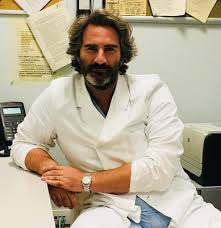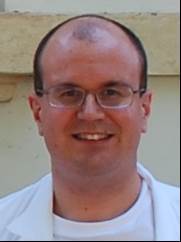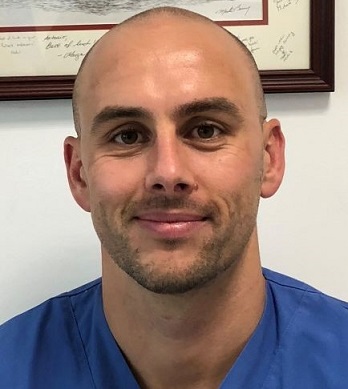Studiare
In questa sezione è possibile reperire le informazioni riguardanti l'organizzazione pratica del corso, lo svolgimento delle attività didattiche, le opportunità formative e i contatti utili durante tutto il percorso di studi, fino al conseguimento del titolo finale.
Calendario accademico
Il calendario accademico riporta le scadenze, gli adempimenti e i periodi rilevanti per la componente studentesca, personale docente e personale dell'Università. Sono inoltre indicate le festività e le chiusure ufficiali dell'Ateneo.
L’anno accademico inizia il 1° ottobre e termina il 30 settembre dell'anno successivo.
Calendario didattico
Il calendario didattico indica i periodi di svolgimento delle attività formative, di sessioni d'esami, di laurea e di chiusura per le festività.
| Periodo | Dal | Al |
|---|---|---|
| 1 SEMESTRE PROFESSIONI SANITARIE | 1-ott-2021 | 23-dic-2021 |
| 1° e 2° semestre (corsi annuali) PROFESSIONI SANITARIE | 1-ott-2021 | 30-set-2022 |
| 2 SEMESTRE PROFESSIONI SANITARIE | 10-gen-2022 | 30-set-2022 |
| Sessione | Dal | Al |
|---|---|---|
| 1^ SESSIONE A.A. 2020/2021 | 1-ott-2021 | 30-nov-2021 |
| 2^ SESSIONE A.A. 2020/2021 | 1-mar-2022 | 30-apr-2022 |
| Periodo | Dal | Al |
|---|---|---|
| Festa di Tutti i Santi | 1-nov-2021 | 1-nov-2021 |
| Festa dell'Immacolata Concezione | 8-dic-2021 | 8-dic-2021 |
| Festa della Liberazione | 25-apr-2022 | 25-apr-2022 |
| Festa della Repubblica | 2-giu-2022 | 2-giu-2022 |
Calendario esami
Gli appelli d'esame sono gestiti dalla Unità Operativa Segreteria Corsi di Studio Medicina.
Per consultazione e iscrizione agli appelli d'esame visita il sistema ESSE3.
Per problemi inerenti allo smarrimento della password di accesso ai servizi on-line si prega di rivolgersi al supporto informatico della Scuola o al servizio recupero credenziali
Per dubbi o domande leggi le risposte alle domande più frequenti F.A.Q. Iscrizione Esami
Docenti
 tommaso.maluta@univr.it
tommaso.maluta@univr.it
Piano Didattico
Il piano didattico è l'elenco degli insegnamenti e delle altre attività formative che devono essere sostenute nel corso della propria carriera universitaria.
Selezionare il piano didattico in base all'anno accademico di iscrizione.
1° Anno
| Insegnamenti | Crediti | TAF | SSD |
|---|
Laboratori professionali (primo anno)
2° Anno Attivato nell'A.A. 2022/2023
| Insegnamenti | Crediti | TAF | SSD |
|---|
Laboratori professionali (secondo anno)
3° Anno Attivato nell'A.A. 2023/2024
| Insegnamenti | Crediti | TAF | SSD |
|---|
Corso Basic Life Support and defibrillation
| Insegnamenti | Crediti | TAF | SSD |
|---|
Laboratori professionali (primo anno)
| Insegnamenti | Crediti | TAF | SSD |
|---|
Laboratori professionali (secondo anno)
| Insegnamenti | Crediti | TAF | SSD |
|---|
Corso Basic Life Support and defibrillation
Legenda | Tipo Attività Formativa (TAF)
TAF (Tipologia Attività Formativa) Tutti gli insegnamenti e le attività sono classificate in diversi tipi di attività formativa, indicati da una lettera.
Laboratori professionali (terzo anno) [Gruppo 2] (2023/2024)
Codice insegnamento
4S000205
Docente
Coordinatore
Crediti
1
Lingua di erogazione
Italiano
Settore Scientifico Disciplinare (SSD)
MED/45 - SCIENZE INFERMIERISTICHE GENERALI, CLINICHE E PEDIATRICHE
Periodo
1° e 2° semestre (corsi annuali) PROFESSIONE SANITARIE dal 2-ott-2023 al 30-set-2024.
Corsi Singoli
Non Autorizzato
Obiettivi di apprendimento
Far acquisire allo studente abilità tecnico-pratiche, relazionali, di problem-solving ed organizzative in contesti protetti, prima di provarsi nei servizi e direttamente sui pazienti, al fine di ridurre l’impatto emotivo che deriva dal provarsi in situazioni reali e garantire eticità e sicurezza ai pazienti. Per tali motivi i laboratori professionali rappresentano un requisito indispensabile per l’attività di tirocinio.Il laboratorio professionale offre l’opportunità allo studente di allenarsi nell’applicare i principi teorici alla pratica clinica.
Prerequisiti e nozioni di base
Per ciascun laboratorio sono indicati i prerequisiti nella specifica scheda pubblicata sulla pagina moodle.
Programma
Le competenze ritenute irrinunciabili al terzo anno e sviluppate con i laboratori sono relative a tecniche (quali ad esempio immobilizzazione del traumatizzato), di accertamento e ragionamento clinico (accertamento avanzato in una persona con problemi cardio-respiratori, analizzare il caso di una persona con trauma cranico), di sicurezza (la gestione sicura della terapia farmacologica in area critica), di organizzazione e pianificazione dell’assistenza, di approccio evidence based (analisi di un articolo scientifico, ricerca bibliografica sulle banche dati e presa di decisioni a partire dalle indicazioni delle linee guida).
Bibliografia
Modalità didattiche
Le sessioni di laboratorio prevedono generalmente esercitazioni in piccolo gruppo e rielaborazione successiva in plenaria con il tutor.
Modalità di verifica dell'apprendimento
Al termine dell’anno di corso il docente formulerà il giudizio di "approvato" sul verbale di esame, tenendo conto della frequenza regolare (100%) e certificata dello studente ai laboratori, con gli eventuali recuperi di assenze e lacune nelle singole abilità.
Criteri di valutazione
Conoscenza dei prerequisiti, partecipazione attiva e acquisizione delle competenze previste.
Criteri di composizione del voto finale
Per l'approvazione finale verrà considerata la partecipazione a tutti i laboratori previsti.
Lingua dell'esame
Italiano
Prospettive
Avvisi degli insegnamenti e del corso di studio
Per la comunità studentesca
Se sei già iscritta/o a un corso di studio, puoi consultare tutti gli avvisi relativi al tuo corso di studi nella tua area riservata MyUnivr.
In questo portale potrai visualizzare informazioni, risorse e servizi utili che riguardano la tua carriera universitaria (libretto online, gestione della carriera Esse3, corsi e-learning, email istituzionale, modulistica di segreteria, procedure amministrative, ecc.).
Entra in MyUnivr con le tue credenziali GIA: solo così potrai ricevere notifica di tutti gli avvisi dei tuoi docenti e della tua segreteria via mail e a breve anche tramite l'app Univr.
Gestione carriere
Orario lezioni
Si invitano gli studenti a prendere visione dei possibili aggiornamenti.
Indicazioni per l'iscrizione alla pagina moodle degli insegnamenti per il 1° anno
Si pubblica la programmazione annuale dell'attività didattica e tirocinio per l'anno accademico 2023-2024
AGGIORNAMENTO 25 MARZO 2024 Calendario lezioni 1°A. 2° semestre A.A. 2023/2024
AGGIORNAMENTO 15 APRILE 2024 Calendario lezioni 3° anno 2° semestre A.A 2023/2024
AGGIORNAMENTO 23 APRILE 2024 Calendario lezioni 2° anno 2° semestre 2023/2024
Documenti
| Titolo | Info File |
|---|---|
|
|
pdf, it, 70 KB, 15/04/24 |
|
|
pdf, it, 60 KB, 24/04/24 |
|
|
pdf, it, 49 KB, 25/03/24 |
|
|
pdf, it, 528 KB, 13/07/23 |
|
|
pdf, it, 8849 KB, 13/10/22 |
Guida ai programmi degli insegnamenti
Guida ai programmi degli insegnamenti
Documenti
| Titolo | Info File |
|---|---|
|
|
pdf, it, 1594 KB, 12/12/22 |
|
|
pdf, it, 1310 KB, 02/09/21 |
Prova Finale
Per essere ammessi alla prova finale occorre avere conseguito tutti i crediti nelle attività formative previste dal piano degli studi, compresi quelli relativi all’attività di tirocinio. Alla preparazione della tesi sono assegnati 7 CFU.
La prova è organizzata, con decreto del Ministro dell'Istruzione, dell'Università e della Ricerca di concerto con il Ministro del Lavoro, della Salute e delle Politiche Sociali, in due sessioni definite a livello nazionale.
La prova finale, con valore di esame di Stato abilitante, si compone di:
- una prova pratica che consiste in un elaborato scritto strutturato, semi-strutturata o con domande aperte su casi/situazioni esemplificative della pratica professionale. La prova deve comprendere una selezione di quesiti di problem solving e di quesiti sulla presa di decisione nelle aree di competenza infermieristica.
- La redazione di un elaborato di tesi e sua dissertazione.
Le due diverse componenti della prova finale devono concorrere in egual misura alla determinazione del voto finale. In caso di valutazione insufficiente della prova pratica l’esame si interrompe e si ritiene non superato. La prova finale viene sospesa e va ripetuta interamente in una seduta successiva.
Il punteggio finale di Laurea è espresso in centodecimi con eventuale lode. Esso viene formato sommando la media ponderata dei voti conseguiti negli esami di profitto, rapportata a 110, con il punteggio ottenuto nella prova pratica (6 punti) e nella discussione della Tesi (parimenti fino ad un massimo di 6 punti)
La Commissione di Laurea potrà attribuire ulteriori punti anche in base a: presenza di eventuali lodi ottenute negli esami sostenuti; partecipazione progetto Erasmus 2 punti aggiuntivi; laurea entro i termini della durata normale del corso 1 punto
Lo studente avrà la supervisione di un docente del Corso di Laurea, detto Relatore, ed eventuali correlatori anche esterni al Corso di Laurea.
Scopo della tesi è quello di impegnare lo studente in un lavoro di formalizzazione, progettazione e di ricerca, che contribuisca sostanzialmente al completamento della sua formazione professionale e scientifica. Il contenuto della tesi deve essere inerente a tematiche o discipline strettamente correlate al profilo professionale.
La valutazione della tesi sarà basata sui seguenti criteri: livello di approfondimento del lavoro svolto, contributo critico del laureando, accuratezza della metodologia adottata per lo sviluppo della tematica.
È prevista la possibilità per lo studente di redigere l'elaborato in lingua inglese.
La scadenza per la presentazione della domanda di laurea e relativa documentazione, verrà indicata negli avvisi dello specifico Corso di Laurea
Documenti
| Titolo | Info File |
|---|---|
|
|
pdf, it, 242 KB, 19/01/24 |
|
|
pdf, it, 80 KB, 06/04/24 |
|
|
pdf, it, 43 KB, 06/04/24 |
|
|
pdf, it, 44 KB, 09/04/24 |
|
|
pdf, it, 148 KB, 06/04/24 |
|
|
pdf, it, 108 KB, 06/04/24 |
|
|
pdf, it, 115 KB, 06/04/24 |
|
|
pdf, it, 1487 KB, 18/02/22 |
|
|
pdf, it, 437 KB, 22/03/24 |
|
|
pdf, it, 957 KB, 22/03/24 |
|
|
pdf, it, 424 KB, 19/01/24 |
Linee guida per riconoscimento cfu
Lo studente che intende chiedere il riconoscimento di moduli o insegnamenti pregressi dovrà presentare domanda, entro il 30 novembre dell’anno accademico in corso, seguendo le indicazioni indicate al link seguente: https://www.univr.it/it/i-nostri-servizi/segreterie-studenti/gestione-carriere-studenti-medicina-e-chirurgia/riconoscimento-crediti-acquisiti-da-una-carriera-pregressa-medicina
Documenti
| Titolo | Info File |
|---|---|
|
|
pdf, it, 295 KB, 09/11/21 |
Appelli d'esame
AGGIORNAMENTO 11 MARZO calendario appelli d'esame di APRILE 2024 per il 1° Anno
AGGIORNAMENTO 4 MARZO calendario appelli d'esame di MAGGIO 2024 per il 3° Anno
Documenti
| Titolo | Info File |
|---|---|
|
|
pdf, it, 190 KB, 11/03/24 |
|
|
pdf, it, 194 KB, 04/03/24 |
|
|
pdf, it, 196 KB, 11/01/24 |
Area riservata studenti
Attività didattiche regime part-time
Modalità di richiesta
La domanda di iscrizione part-time può essere presentata all'inizio di ogni anno accademico e comunque entro il 30 novembre di ogni anno. Entro lo stesso termine, se necessario, lo studente potrà richiedere di tornare al regime full-time. Al link seguente la pagina del servizio https://www.univr.it/it/i-nostri-servizi/segreterie-studenti/flessibilita-nella-frequenza-dei-corsi/possibilita-di-iscrizione-part-time-e-ripristino-full-time
Una volta inviata la domanda, lo studente concorda in via preventiva con il Coordinatore della didattica professionale (CDP), il piano di studi che intende perseguire nel periodo di part-time compilando il modulo in allegato
Documenti
| Titolo | Info File |
|---|---|
|
|
octet-stream, it, 1309 KB, 21/10/22 |

 +39 045 8128275
+39 045 8128275




















